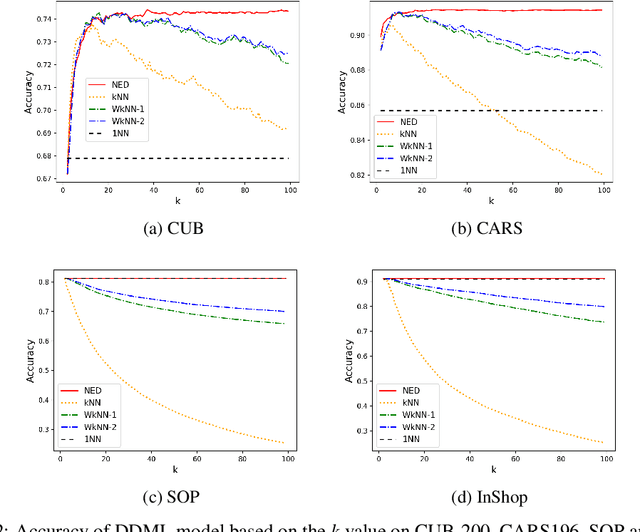Maryna Karpusha
Calibrated neighborhood aware confidence measure for deep metric learning
Jun 08, 2020



Abstract:Deep metric learning has gained promising improvement in recent years following the success of deep learning. It has been successfully applied to problems in few-shot learning, image retrieval, and open-set classifications. However, measuring the confidence of a deep metric learning model and identifying unreliable predictions is still an open challenge. This paper focuses on defining a calibrated and interpretable confidence metric that closely reflects its classification accuracy. While performing similarity comparison directly in the latent space using the learned distance metric, our approach approximates the distribution of data points for each class using a Gaussian kernel smoothing function. The post-processing calibration algorithm with proposed confidence metric on the held-out validation dataset improves generalization and robustness of state-of-the-art deep metric learning models while provides an interpretable estimation of the confidence. Extensive tests on four popular benchmark datasets (Caltech-UCSD Birds, Stanford Online Product, Stanford Car-196, and In-shop Clothes Retrieval) show consistent improvements even at the presence of distribution shifts in test data related to additional noise or adversarial examples.
 Add to Chrome
Add to Chrome Add to Firefox
Add to Firefox Add to Edge
Add to Edge